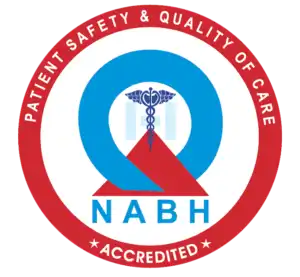Non-Surgical Regenerative Therapy for Shoulder Joint Pain in Bangalore
Regenerative therapy- Advanced Non surgical treatment for Painful Shoulder
Shoulder joint pain is not so uncommon in any age group from a young sports person to elderly population. We tend to ignore the initial pain by applying some ointments and taking few medicines in form of pain killers. Although few of them may give pain relief but slowly the pain become severe and if under looked may lead to a stage of frozen shoulder where it becomes impossible to even lift your hand thereby restricting the daily activities like wearing clothes, combing hair.
What are the common causes of shoulder pain?
Shoulder joint is a big complex joint with numerous muscles, tendons and ligaments around it to support and protect it. When a nagging shoulder pain becomes troublesome , identifying the pain generator to treat is very vital. Any form of injury to shoulder due to trauma, sports injuries or due to some medical conditions like diabetics , the joint and muscles around the shoulder
become prone for damage leading to painful shoulder . A group of four muscles called rotator cuff surrounds the shoulder joint to protect it and is a very potential source of tear and pain from the shoulder joint. A condition called Frozen shoulder is mostly seen in cases of uncontrolled diabetes and also in cases of unhealed injury which passes from a stage of initial restriction of
movement to complete stuck joint if not treated. Osteoarthritis of shoulder joint is not so uncommon in old age leading to excruciating pain. When nothing can take away your pain, surgery is what is advised and then patients tend to succumb to this last treatment modality.
Are there any test to identify the pathology?
To get rid of shoulder joint pathologies it is important to understand and identify the pain generators and so do not wait to see your pain physician as soon as possible. The physician will perform a series of tests on the patient to find out the source of pain and if required may send for certain investigations like a MRI or ultrasound examination.
The ideal way of making a diagnosis of the shoulder joint pain is by performing a dynamic ultrasound scan by an Pain Physician to identify the pathology. .
What are the treatment options?
Till now even though the pain pathologies have been identified but still most of the patients suffer due to less awareness about the available treatment options. Pain killers, physiotherapy and in some cases undergoing painful cumbersome surgeries were the only treatment options known to the patients.
What is Regenerative therapy for Shoulder Pain?
The latest treatment modalities yielding almost 100 percent results by simple day care non surgical procedures is Regenerative therapy. Regenerative therapy attempts to heal the body parts in the most efficient and natural way by its ability to harness the body’s healing factors. Platelet rich plasma therapy is the most common type of Regenerative therapy which is done to heal the muscle , tendon and cartilage injury with patients own blood done as a day care procedure. This procedure yields maximum results and is approved especially in cases of rotator cuff injury . One sitting of platelet rich plasma therapy takes only few days for complete healing of the tendon. This therapy has shown to improve patient outcome in the most fastest way and none of the risks inherent in the surgical procedures is seen with this therapy. The patient can
resume the daily activity from the very next day requiring no special precautions.
What is Regenerative Therapy?
Regenerative medicine is a new emerging branch which deals with repairing and regenerating the torn-out tissues using one ‘s own blood. Human body tends to degenerate and get damaged because of aging or due to excessive use or as a result of injury.
How does it work?
Human blood has many growth factors present in the platelets. When injected into the torn tissue, they help to repair it and also will lead to regeneration of new healthy tissue
How is the procedure done?
The procedure is very simple and done as a day care procedure.
Patient’s own blood is taken using a thin needle and blood is transferred in a special container called cartridge and this cartridge is put into a particular machine for centrifugation. After the centrifugation blood is separated into two different layers. The lower layer is the RBC and top most layers are called the plasma. These two layers are separated by closing a channel between them present in the cartridge.
After this another round of spin is done which will separate 2ml of platelet rich plasma from rest of the plasma. This platelet rich plasma is rich in growth factors. The entire processing of preparation takes 20-30 minutes. The preparation for PRP is done in a specialized machine under appropriate temperatures. After the PRP is prepared, the patient is taken into the operation theatre. The torn area is identified under ultrasound or fluoroscopic machine and the PRP containing the growth factors prepared is injected into the damaged area.
Once the PRP is injected into the damaged area, it creates a small amount of inflammation that triggers the healing cascade. There are number of growth factors and enzymes released which will lead to formation of collagen and thereby repair and regenerate the tissue.


